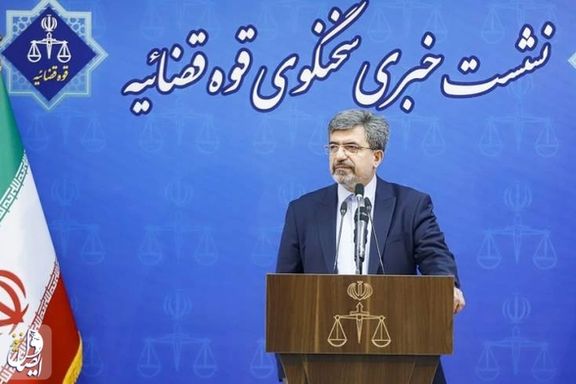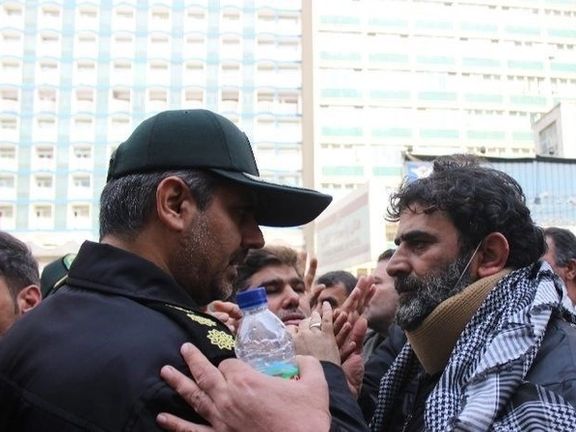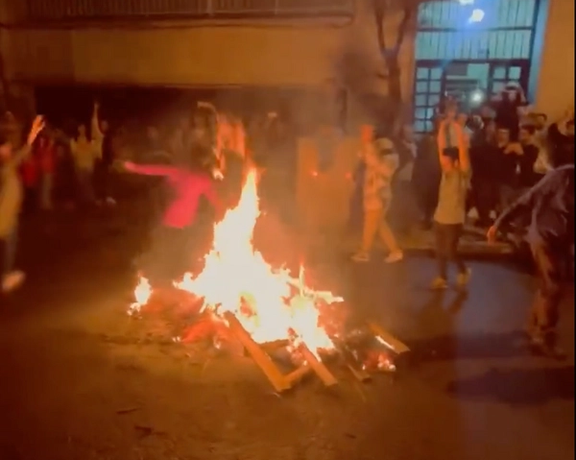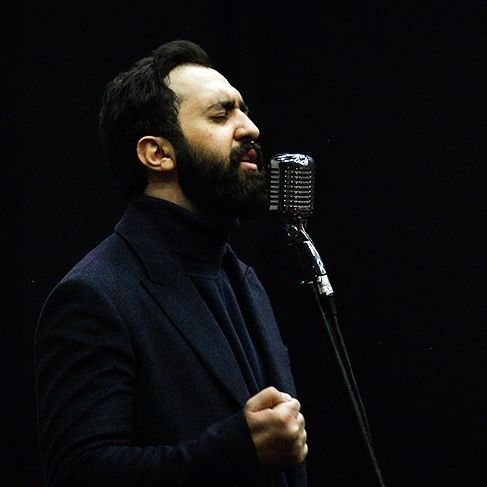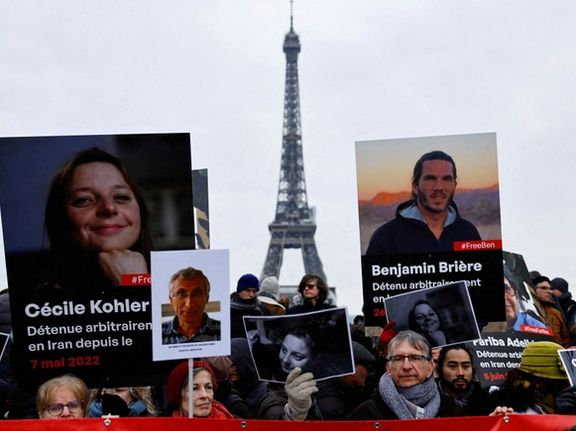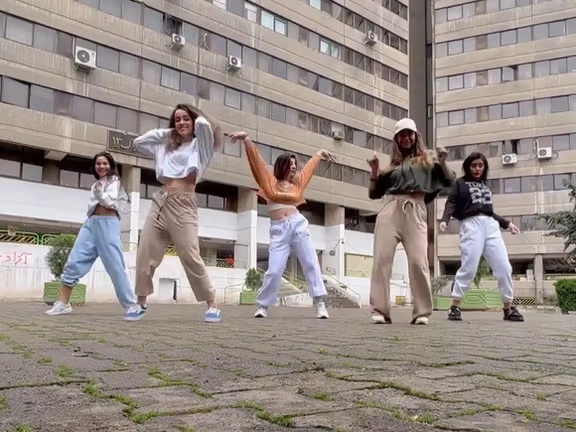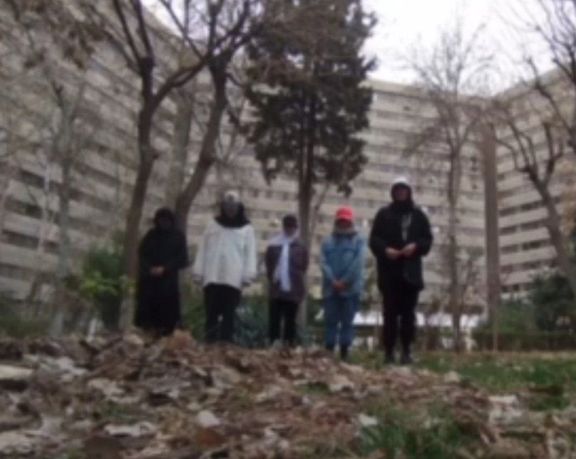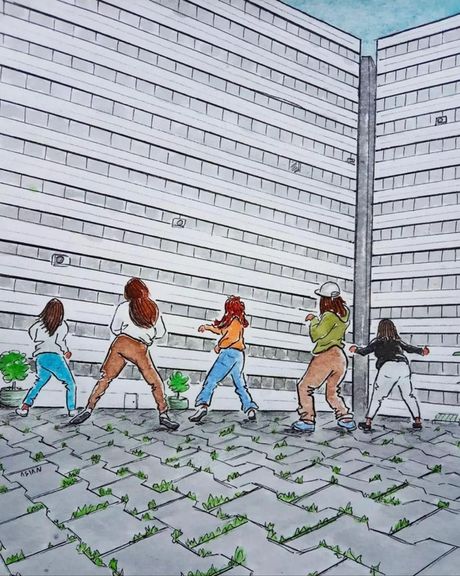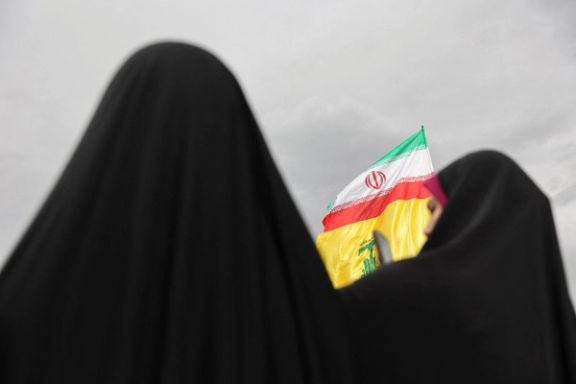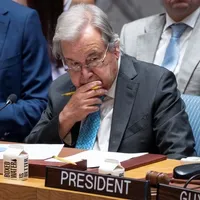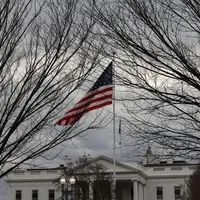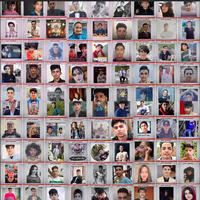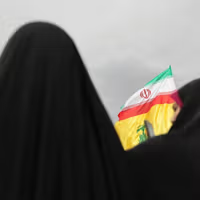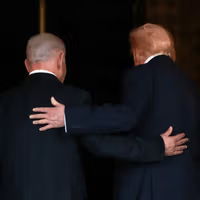Judiciary Spokesman Masoud Setayeshi said Tuesday at a press briefing that around thirty celebrities have been indicted by courts, and he threatened them with harsh repercussions if they continued such activities.
The interior ministry said Saturday that over 100 people in eleven provinces were arrested in connection with the poisonings that started in the religious city of Qom in central Iran in late November and spread to dozens of schools across the country. The accused, authorities claim, were connected to “terrorist groups” and foreign governments.
The government, however, has not revealed any details about these alleged arrests, as the public remains skeptical about the government’s role in the attacks.
Among the celebrities indicted for his social media posts about the spate of attacks is popular actor Reza Kianian. In a recent Instagram post Kianian shared a poster showing two men in black balaclavas and combat uniform holding up a little girl with a gas mask on her face fearlessly flashing a victory sign at one of the two men.
Kianian came under immense attack from hardliners on social media for the post that suggested security forces’ involvement in the poisonings, and demanded that authorities take legal action against him for defaming security forces.
Like Kianian, many ordinary Iranians have been suspicious of involvement of the regime itself, or religious extremists protected by the regime, in the school attacks and call the acts “state terrorism”.
Instagram post by actor Reza Kianian
Authorities have revealed very little about the alleged perpetrators, the nature of the attacks, and the chemicals used to poison the children. The state television, nevertheless, aired the so-called ‘confessions’ last week of a man and his daughter arrested and accused of attacking schools with N2 gas canisters.
One of the accused said in the video that they lit “wicks” attached to the canisters before throwing them in the courtyards of seven schools in Larestan, a city in southern Iran. Experts say N2 is neither poisonous nor flammable to require a flame to explode and spread.
Several celebrity actors and other artists who supported the Mahsa protest movement by criticizing the regime or releasing ‘hijabless’ photos of themselves on social media, such as popular actress Taraneh Alidousti, were arrested in the past six months.
In defiance of the compulsory hijab, Alidousti appeared ‘hijabless’ in the photos taken outside Tehran’s Evin prison with her colleagues and supporters upon her release on a large bail in January after nearly three weeks of imprisonment.
Actress Taraneh Alidousti after being released on bail outside the prison
The harsh legal action against celebrities follows threats of "severe punishment” by Chief Justice Gholam-Hossein Mohseni-Ejei against those criticizing the authorities for the gas attacks that have sent hundreds of schoolgirls to hospitals.
The judiciary spokesman also said Tuesday that the charges have been brought against three newspaper editors, academic and reformist political activist Sadegh Zibakalam, and Secretary General of Unity of the Nation Party Azar Mansouri for “spreading rumors and lies.”
Around sixty journalists have been arrested since September in connection with the protests ignited by the death of the 22-year-old Mahsa Amini who died in the custody of the morality police after being arrested on the street for not wearing her hijab ‘properly’. Two female reporters, Elaheh Mohammadi and Niloufar Hamedi, who were arrested in October for their reporting on Mahsa’s death, are still in prison.
